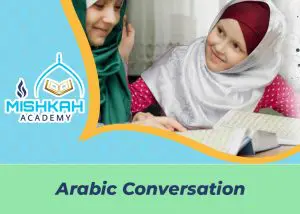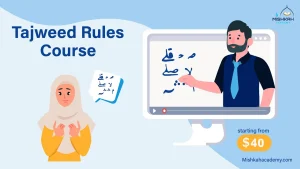How To Say How Are You In Arabic
Table of Contents
ToggleLearning how to say “how are you” in Arabic, or “kayf haalak” ، كيف حالك in Arabic, is a pivotal step in building connections and relationships with Arabic-speaking communities. Arabic is one of the most spoken languages in the world, and learning basic greetings is crucial to being able to communicate effectively. The phrase “kayf haalak” means “how is your situation” or “how are you doing”.
Arabic is a complex language with a rich cultural history, and learning the proper way to greet someone in Arabic is key to showing respect and building rapport. The phrase “kayf haalak” is typically used in formal settings and with people who are older or hold a higher position in society. It is important to note that the term is gender-neutral and can be used to greet both males and females.
To respond to the question “kayf haalak”, there are several options. The most common response is “ana bekhair” انا بخير, which means “I am fine”. Another alternative is “ana tamam” انا تمام, which also means “I am good”. These responses are polite and appropriate for both formal and informal settings.
It is important to note that cultural nuances are essential in understanding how to use the Arabic language effectively. Depending on the dialect and location, variations of the phrase “kayf haalak” may exist. For example, in the Levant region, the phrase “shlonak” شلونك is used instead of “kayf haalak”. Different Arab countries have unique dialects and ways of speaking, which may require further study to better understand proper communication.
In conclusion, learning how to say “how are you” in Arabic is an excellent starting point when learning the language. The phrase “kayf haalak” is formally used in Arabic-speaking communities, and showing understanding and respect for the Arabic language and culture can greatly enhance communication and build positive relationships. Practice is key to learning any language, and perfecting basic greetings and responses is instrumental in effective communication.
Start learning Arabic from the comfort of your Home with the Best Online Arabic School
Learn Quran, Arabic & Islamic Online
Arabic Conversation Course
Learning Arabic can be a daunting task, especially if you have no prior experience with the language. However, with the rise of online courses and resources, it has become easier than ever to learn Arabic from the comfort of your own home. Many websites offer comprehensive Arabic courses that cater to all levels of learners, from beginner to advanced.
One of the biggest advantages of learning Arabic online is the convenience factor. You no longer have to commute to a physical location, attend classes at specific times, or deal with schedule clashes that can limit your ability to learn. Online Arabic courses are often self-paced, which means that you can work at your own speed and convenience. Additionally, many online courses offer various resources like practice sessions, pronunciation exercises, and quizzes that you can access at any time.
Another advantage of learning Arabic online is the range of options available. With so many websites and online courses out there, you can choose a course that suits your needs, budget, and learning style. Some websites offer free and paid courses, while others offer more interactive courses that include live tutoring and group discussions. Additionally, online courses can connect students from all over the world, allowing for a diverse learning experience and the chance to practice speaking with a range of Arabic speakers.
In conclusion, taking an online Arabic course is a great option for those looking to learn the language at their own pace and convenience. With the rise of online resources and courses, learning Arabic has never been more accessible. Whether you’re a beginner or an advanced learner, there’s an online course out there that will cater to your needs and help you achieve your goals. So why not start learning Arabic online today?
FAQs
Hello how are you in Arabic
“Hello how are you” is a simple yet polite greeting used by people worldwide to acknowledge one another. In Arabic, the phrase for “Hello how are you” is “Marhaba, kaifa haluka/ haluki?”. When translated to English, this means “Hello, how are you?”. Although the phrase may seem simple, it reflects the Arab culture’s emphasis on hospitality and respect towards others.
How do you say how are you in Arabic
The phrase “Marhaba, kaifa haluka/ haluki?” is called a formal greeting in Arabic. In the Arab world, it is customary to accompany a greeting with a handshake, smile and eye contact. The culture values friendliness and taking the time to ask someone how they are doing is viewed as a sign of respect. This is why the phrase is often followed by a “shukran” which means thank you, as a sign of appreciation for asking about their wellbeing.
How are you doing in Arabic
Language is a vital component of culture. Using a proper greeting is essential in any language, even more so in the Arab world where the language is an integral part of their traditions and values. Learning how to say “Hello how are you” in Arabic is not only a great conversation starter but it also demonstrates to the Arab people that you have an appreciation for their language and culture. Overall, greetings like “Marhaba, kaifa haluka/ haluki?” are more than just words, they embody a warm and respectful approach towards others.
Hi how are you in Arabic
When learning the Arabic language, one of the first things you may want to know is how to ask someone how they are. In Arabic, asking how someone is, is most commonly expressed using the phrase “kayf halak” or “kayf halik”. The phrase is used in informal settings to ask someone how they are feeling or doing.
How are you in Egyptian Arabic
“Kayf halak” and “kayf halik” are two variations of the same phrase. The only difference is that “kayf halak” is used to address a male, while “kayf halik” is used to address a female. The phrase is basically a polite way of asking someone if they are fine or okay. It is typically used as a common greeting in Arabic speaking countries and has become a common phrase across the Arab world.
How to say hi how are you in Arabic
When asking someone “how are you” in Arabic, it’s important to note that there are other phrases that are also used depending on the Arabic dialect. For example, in Egyptian Arabic, the phrase “ezayak” is commonly used to ask someone how they are doing. Similarly, in Lebanese Arabic, you can use the phrase “shu halak” to ask someone how they are feeling. Nonetheless, using “kayf halak” or “kayf halik” will typically do the job in any Arabic speaking country.
How to say hello how are you in Arabic
In Arabic, the most common way to say hello is “Marhaba”. This is a standard greeting used in most Arabic-speaking countries. It is an easy word to remember and quite useful in social settings or business interactions. It is best pronounced as “mahr-hahb-ah”. Usually, you will hear people greet each other by saying “Marhaba” followed by some pleasantries.
How are you translate in Arabic
To follow up with the greeting, you can ask “Kif halak?” for “How are you?”. This phrase is widely used in the Middle-East, particularly in Lebanon, Palestine, and Jordan. It is pronounced as “kee-f hah-luk” for a male and “kee-f hah-lik” for a female. If you want to reply to this question, you can say “Ana bikhair, shukran” for “I’m fine, thank you”. You can also say “Mabsouta” which means “I’m happy” or simply “Al 7amdoulilah” which means “Thanks to God, everything is good”.
I am fine how are you in Arabic
Learning the Arabic language’s basics is crucial if you plan on communicating with Arabic speakers. Greeting someone by saying “Marhaba” opens the conversation on a positive note. Follow up by asking “Kif halak?” to show that you are interested in the person’s well-being. When you get a response, take the time to acknowledge it and even try to continue the conversation. With these phrases in hand, you can spark a conversation and make a great first impression.
Say how are you in Arabic
“How are you?” is a commonly used phrase in every language. In Arabic language, the phrase that is commonly used to get to know someone’s well-being is “Kaif halik?” (كيف حالك؟). This phrase can be used in formal as well as informal settings.
When translated literally, “Kaif halik?” means “How is your condition?” or “How is your state?”. It is important to note that using this phrase is a sign of good manners and respect in the Arab culture. In turn, it is also customary to reply with a polite answer regardless of one’s actual state of well-being.
How are you in arabic language
In addition to this common phrase, there are also other ways to ask how someone is doing in Arabic such as “Shlonik?” (شلونك؟) which is more commonly used in the Levant region. Whether you are a beginner or an advanced Arabic speaker, learning to ask and answer these phrases will help you build connections and relationships in the Arab world.


























